This creature was discovered by chance in a Caribbean mangrove. It is surprising not only for its size but its DNA-encasing internal membranes.
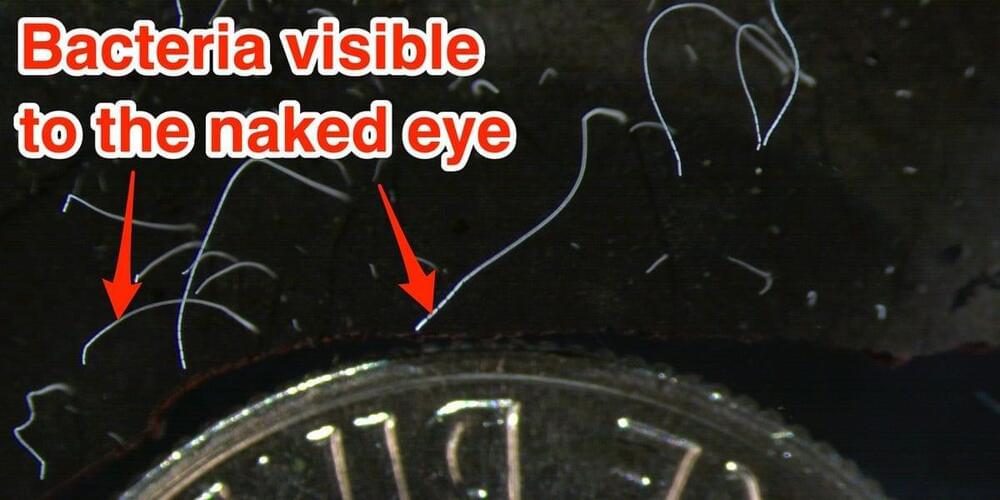

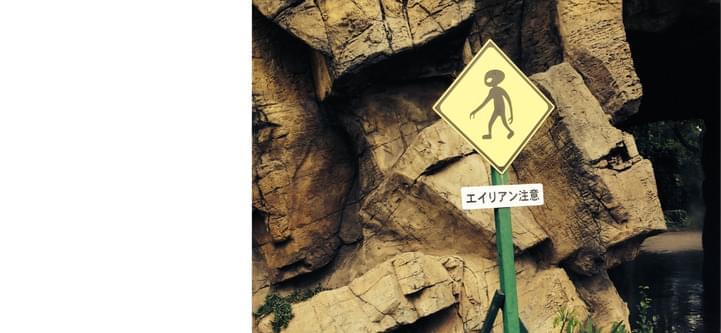
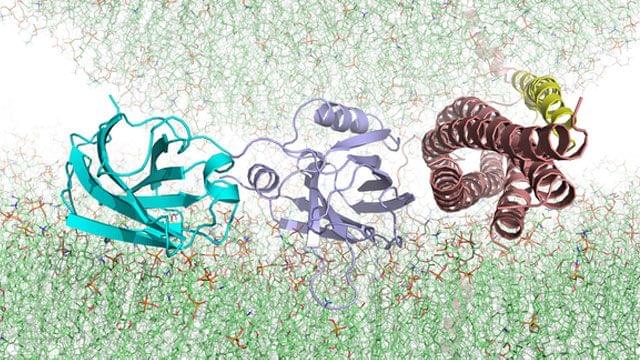
Decades of research has led to a thorough understanding of the main protein players and the broad strokes of membrane fusion for synaptic transmission. Bernard Katz was awarded the 1970 Nobel Prize in Medicine in part for demonstrating that chemical synaptic transmission consists of a neurotransmitter-filled synaptic vesicle fusing with the plasma membrane at nerve endings and releasing its content into the opposing postsynaptic cell. And Rizo-Rey’s longtime collaborator, Thomas Südhof, won the Nobel Prize in Medicine in 2013 for his studies of the machinery that mediates neurotransmitter release (many with Rizo-Rey as a co-author).
But Rizo-Rey says his goal is to understand the specific physics of how the activation process of thought occurs in much more detail. “If I can understand that, winning the Nobel Prize would just be a small reward,” he said.
Recently, using the Frontera supercomputer at the Texas Advanced Computing Center (TACC), one of the most powerful systems in the world, Rizo-Rey has been exploring this process, creating a multi-million atom model of the proteins, the membranes, and their environment, and setting them in motion virtually to see what happens, a process known as molecular dynamics.
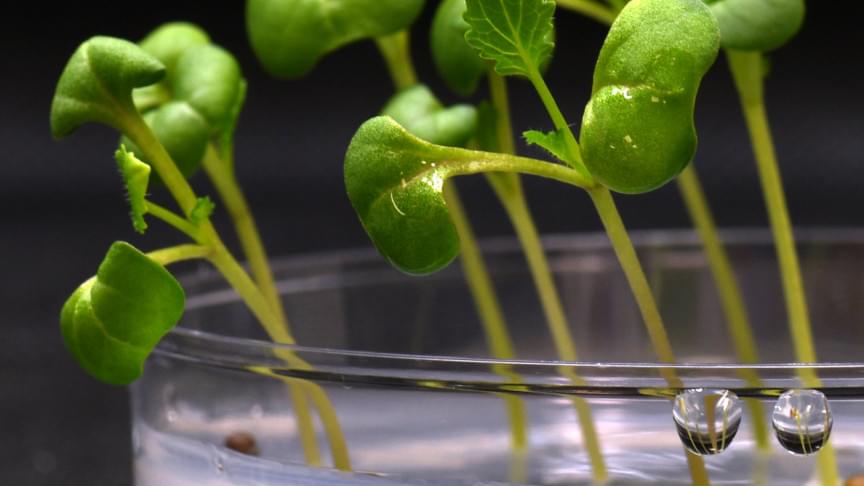
The researchers also optimized their electrolyzer to produce the highest levels of acetate ever produced in an electrolyzer to date. What’s more, they found that crop plants, including cowpea, tomato, rice, green pea, and tobacco, all have the potential to be grown in the dark using the carbon from acetate. There’s even a possibility that acetate could improve crop yields, though more research is required.
The researchers believe that by reducing the reliance on direct sunlight, artificial photosynthesis could provide an important alternative for food growth in the coming years, as the world adapts to the worst effects of climate change — including droughts, floods, and reduced land availability. “Using artificial photosynthesis approaches to produce food could be a paradigm shift for how we feed people. By increasing the efficiency of food production, less land is needed, lessening the impact agriculture has on the environment. And for agriculture in non-traditional environments, like outer space, the increased energy efficiency could help feed more crew members with less inputs,” Jinkerson explained.
Superhumans are coming! Various technological advances in the field of medicine through AI and CRISPR are going to radically alter our understanding of what it means to be human. AI and Crispr technology have been making revolutionary changes to the field of medicine. Artificial intelligence is being applied in identification of harmful genes and treatment of disease.
Multiple new gene editing technologies in addition to artificial intelligence will cause major changes in healthcare.
The gene-editing tool CRISPR, short for clustered regularly interspaced short palindromic repeats, could help us to reprogram life. It gives scientists more power and precision than they have ever had to alter human DNA.
Could it be conceivable that at one point in the future we could increase the average IQ of the population?
CRISPR technology in the future could enable efficient and affordable treatment of many diseases. It will be also probably used to enhance our intelligence.
CRISPR was originally designed as a technique for editing the DNA of living organisms, but its uses and capabilities have expanded substantially. It is now used widely in biomedical research, including research into human genetics. One of the main issues concerning technologies such as CRISPR-Cas9 is accuracy and safety, as mistakes can have significant and dangerous consequences when it comes to an individual’s genome.
David Sinclair explains the mind boggling breakthroughs of medicine in recent times.
The possibility of altering the sequences of genes and correcting the mistakes that were previously irreversible opens many new possibilities for research. Nevertheless, for now, genetic editing technology is still incapable of making the hundreds of changes presumably necessary to make a superintelligent human. But the corresponding ethical issues deserve serious attention before these capabilities become a reality.
Artificial Intelligence is touching almost every aspect of our lives. It’s reasonable to expect AI influence will only increase in the future. One of many fields heavily influenced by AI is the military. Particularly in the development of Supersoldiers. The notion of super-soldiers enhanced with biotechnology and cybernetics was once only possible in the realm of science fiction. But it may not be too long before these concepts become a reality.
A new worldwide arms race is pitting countries against each other to be the first to successfully create real genetically modified super soldiers by using tools such as CRISPR. Understandably many of these human enhancement technologies raise health and safety questions and it is more likely these enhancements will first gain traction in countries that do not place as much weight on ethical concerns.
According to US Intelligence, China has conducted “human testing” on members of the People’s Liberation Army in hope of developing soldiers with “biologically enhanced capabilities.
This has made the U.S. military’s top intelligence agencies increasingly worried but the Pentagon has significantly invested in its own research in AI and in the extension of the human senses beyond their current physical limitations, to provide soldiers with superhuman abilities.
The basics of brain-machine interfaces with AI are being developed for the military, and if the results are as successful as scientists hope they will be, soldiers could one day be enhanced with cybernetics, effectively becoming trans-human soldiers.
The US Military is also examining newly scientific tools, like genetic engineering, brain chemistry, and shrinking robotics, for even more dramatic enhancements. But most of this advanced technology remains classified.
Outer Space, Inner Space, and the Future of Networks.
Synopsis: Does the History, Dynamics, and Structure of our Universe give any evidence that it is inherently “Good”? Does it appear to be statistically protective of adapted complexity and intelligence? Which aspects of the big history of our universe appear to be random? Which are predictable? What drives universal and societal accelerating change, and why have they both been so stable? What has developed progressively in our universe, as opposed to merely evolving randomly? Will humanity’s future be to venture to the stars (outer space) or will we increasingly escape our physical universe, into physical and virtual inner space (the transcension hypothesis)? In Earth’s big history, what can we say about what has survived and improved? Do we see any progressive improvement in humanity’s thoughts or actions? When is anthropogenic risk existential or developmental (growing pains)? In either case, how can we minimize such risk? What values do well-built networks have? What can we learn about the nature of our most adaptive complex networks, to improve our personal, team, organizational, societal, global, and universal futures? I’ll touch on each of these vital questions, which I’ve been researching and writing about since 1999, and discussing with a community of scholars at Evo-Devo Universe (join us!) since 2008.
For fun background reading, see John’s Goodness of the Universe post on Centauri Dreams, and “Evolutionary Development: A Universal Perspective”, 2019.
John writes about Foresight Development (personal, team, organizational, societal, global, and universal), Accelerating Change, Evolutionary Development (Evo-Devo), Complex Adaptive Systems, Big History, Astrobiology, Outer and Inner Space, Human-Machine Merger, the Future of AI, Neuroscience, Mind Uploading, Cryonics and Brain Preservation, Postbiological Life, and the Values of Well-Built Networks.
He is CEO of Foresight University, founder of the Acceleration Studies Foundation, and co-founder of the Evo-Devo Universe research community, and the Brain Preservation Foundation. He is editor of Evolution, Development, and Complexity (Springer 2019), and Introduction to Foresight: Personal, Team, and Organizational Adaptiveness (Foresight U Press 2022). He is also author of The Transcension Hypothesis (2011), the proposal that universal development guides leading adaptive networks increasingly into physical and virtual inner space.
A talk for the ‘Stepping into the Future‘conference (April 2022).
The Goodness of the Universe: Outer Space, Inner Space, and the Future of Networks /w John Smart
Many thanks for tuning in!
Have any ideas about people to interview? Want to be notified about future events? Any comments about the STF series?
Foresight Molecular Machines Group.
Program & apply to join: https://foresight.org/molecular-machines/
John Randall.
Why the world is finally ready for Atomically Precise Manufacturing.
Sergei Kalinin.
Electron Microscopy: The Fab on a Beam.
John Randall is currently President/CEO at Zyvex Labs. Prior to Zyvex, John spent 15 years with Texas Instruments (TI) where he worked in high resolution processing for integrated circuits, MEMS, and quantum effect devices and also worked at MIT’s Lincoln Laboratory on ion beam and x-ray lithography. John is Executive VP at NanoRetina and currently lends his 30+ years of experience in micro-and nano-fabrication to his roles as.
Adjunct Professor at UT Dallas and Fellow of the AVS and IEEE.
Sergei Kalinin is a corporate fellow at the Center for Nanophase Materials.
Sciences (CNMS) at Oak Ridge National Laboratory. He is also a Joint Associate Professor at the Department of Materials Science and Engineering at the University of Tennessee-Knoxville. He is a recipient of the Blavatnik Award (2018) and the RMS medal for Scanning Probe Microscopy (2015).
Find a written summary of this talk here (including slides, notes and more):
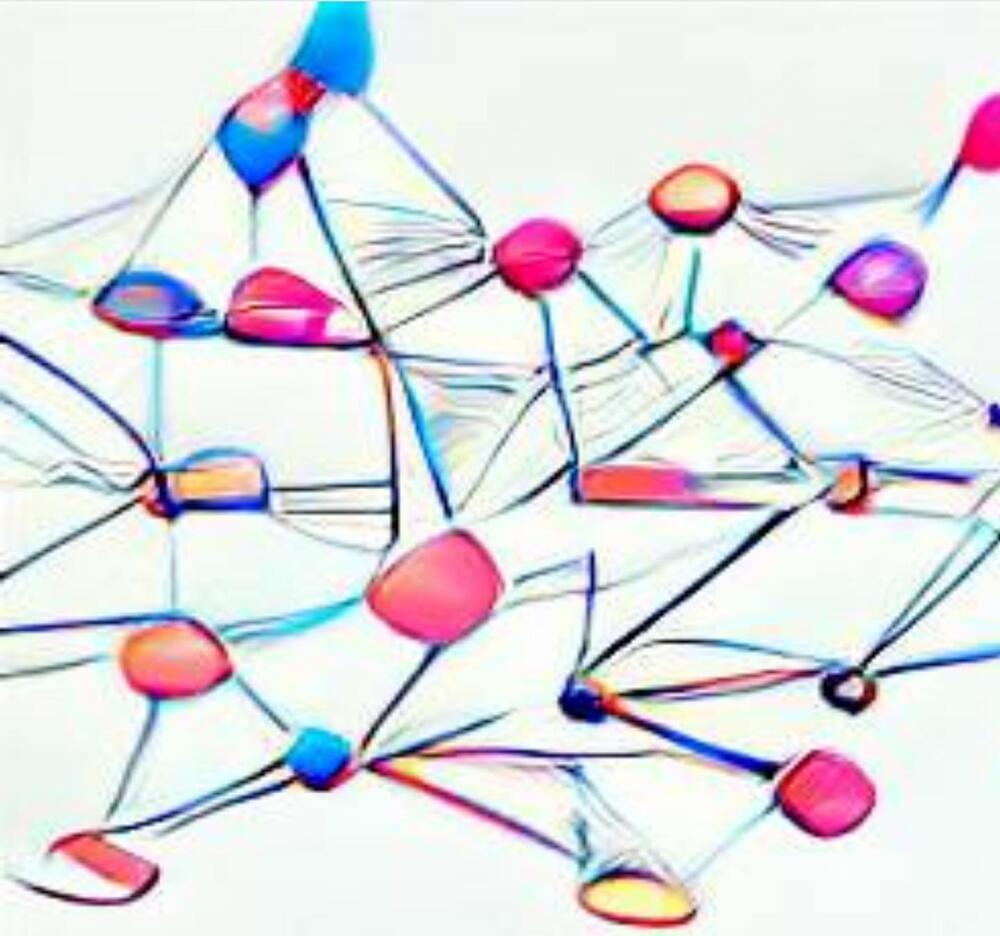

A rare, five-planet alignment will peak on June 24, allowing a spectacular viewing of Mercury, Venus, Mars, Jupiter and Saturn as they line up in planetary order.
The event began at the beginning of June and has continued to get brighter and easier to see as the month has progressed, according to Diana Hannikainen, observing editor of Sky & Telescope.
A waning crescent moon will be joining the party between Venus and Mars on Friday, adding another celestial object to the lineup. The moon will represent the Earth’s relative position in the alignment, meaning this is where our planet will appear in the planetary order.